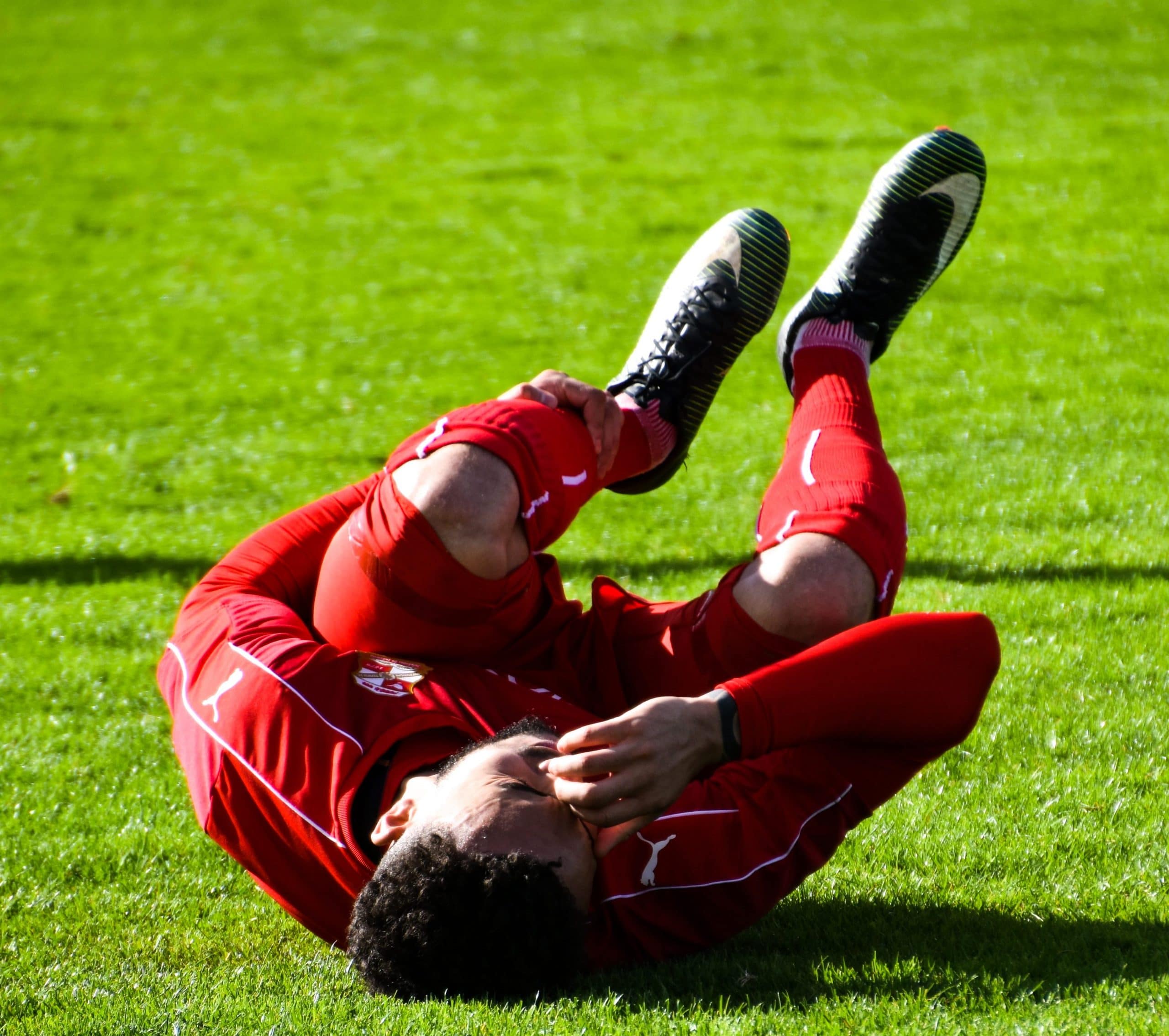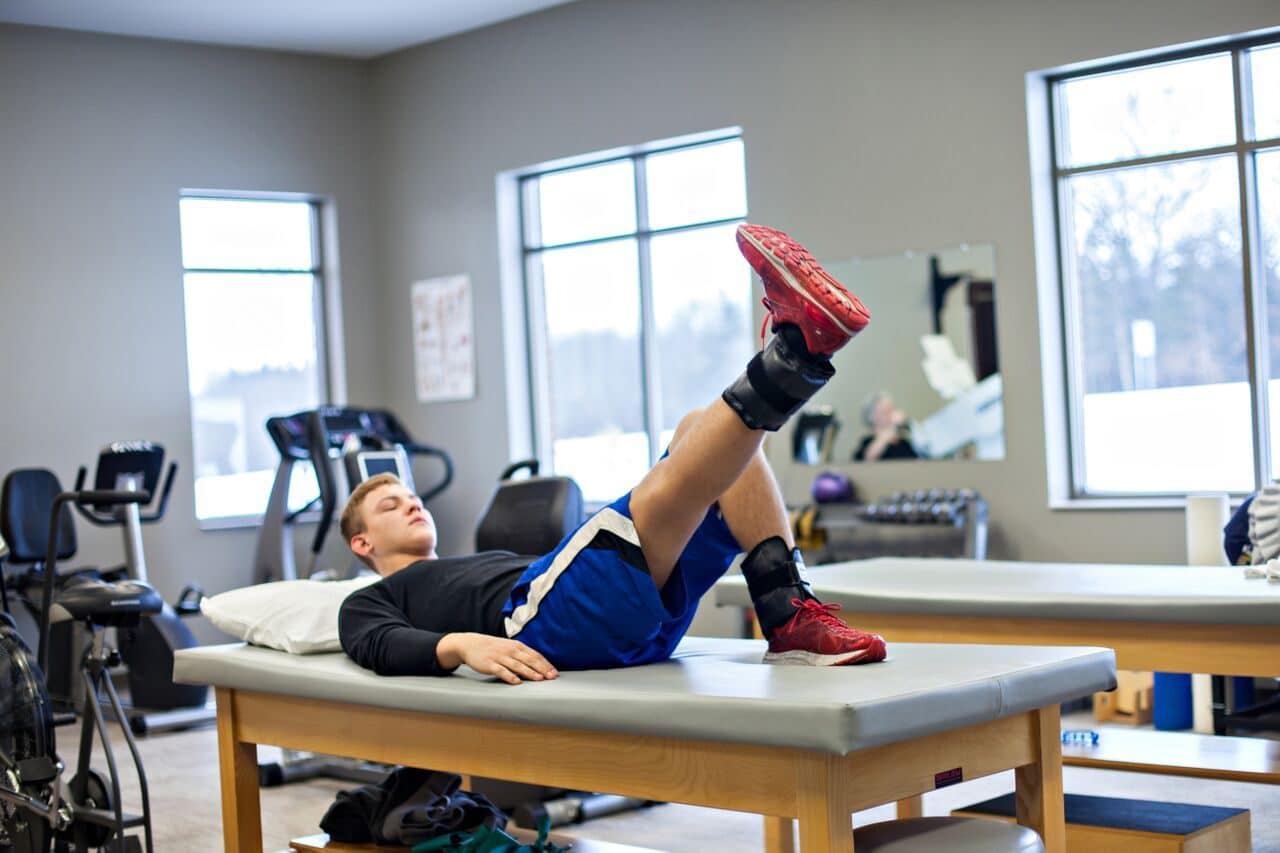5 Things To Do When You Sustain A Sports Injury That Puts You Out For The Season
We have all seen it, that moment, the one where you know that the athlete on the field, court, or floor is done for the season. The scream or the pop or the quiet that tells you that this is serious. The kid is taken away by whatever means is appropriate and usually the game continues. For most people that is the end of it, you care and you follow up but once they are out they are now the kid in plain clothes on the sideline. But what about the kid? What now? What do you do when you are the one who can’t finish your season?

1- Stay a part of the team: It is hard to be an athlete who is not playing a sport. It is harder still to come back to your team if you never attend another practice. GO!! Find a way to be involved, learn in another way while you are less mobile. I hear from kids all the time that they never noticed things about practice until they were on the sidelines. They find a new respect for how much the coach is doing, notice who is working hard on the team and who is not, and above all become the kid who won’t take practice for granted the next year. Kids that stay a part of the team tend to stay positive (see bullet point 4), and remember why they are doing the hard work. There are obviously going to be parts of practice you cannot be a huge part of, but this is a good time to practice things on your own. Work on your general physical fitness or do your home exercise program see bullet point 3. (It’s all connected stay with me here.)
2- Support your teammates: Take some of that knowledge that you are garnering from being at practice and share it. Not in an obnoxious, “do as I say” way but in an “I’m going to lift you up” way. The kid that is working hard but isn’t getting noticed, Notice, and say something. Help! Whether you are filling water bottles, holding a timer, clapping and encouraging, or being a literal traffic cone for a drill, you are helping your teammates get better. Coaches and teammates are going to remember how you handled yourself while you were out, this type of behavior is ALWAYS better for you and for them.
3- Do your exercises: There is a reason your Doctor, Coach, Athletic Trainer and parents want you to go to Physical Therapy… IT WORKS. I have the unique privilege of working for Hulst Jepsen Physical Therapy in the clinic and at South Christian High School and I get to occasionally see my athletes in both places. Pro-tip kids; when you are asked if you have been doing your exercises, it’s a trick, we already know if you are or not. Most of the time it is obvious if you are taking the time to help yourself beyond your appointments. Even if you go to Physical Therapy 5 days a week you are spending a small percentage of your time working towards your goal. The PT’s I work with are awesome about outlining a home exercise program for their patients. They are specific about how often to do the exercises and repetitions. These are not arbitrary numbers generated by a machine, they are thought out specifically for you… so DO THEM!! This goes both ways, when you are told to do something 5 times a day and you only do it once you are hurting your progress. However if you are told to do something once a day and you do it 10 times a day there is a good chance you are doing too much and can be hurting yourself that way too. What you are given for a home program is specific to your individual needs, follow the guidelines and be honest about it when you go for your visits. The program will change based on your progression and your changing needs.

4- Exercise the things that are not injured: Several studies show that doing exercises on the non-injured side of your body, even though unable to do them on the injured side, helps improve the neurological pathways to both sides. Laymen’s terms- working my right side, helps my left. Working on balance and strength proprioception, on one side has reciprocal effects. Additionally, you can work your upper body when your lower body is injured and vice versa. There are many ways to work your cardiovascular system other than running, for example biking, rowing and swimming are great options, try them. There are very few injuries where the injury itself is a good enough excuse for you to do nothing for physical health for months on end.
5- Seek Legal Representation: While focusing on recovery is paramount, it’s equally important to ensure your rights are protected, especially if your injury occurred due to someone else’s negligence. Medical bills, rehabilitation costs, and missed playing time can quickly add up, making the process even more overwhelming. This is where seeking legal guidance can make a big difference.
A qualified lawyer for an injury claim can help you understand your rights and the potential avenues for compensation. They will meticulously evaluate your case, gathering evidence and documentation to strengthen your claim. This includes medical records, witness statements, and accident reports, which are essential in establishing liability and demonstrating the extent of your injuries. With their expertise, you can focus on your recovery while they handle the legal intricacies of your case.
Moreover, legal professionals understand the tactics that insurance companies often use to minimize payouts. They are skilled negotiators who can effectively communicate your needs and advocate for fair compensation on your behalf.
Their experience allows them to anticipate potential challenges and proactively address them, increasing the likelihood of a successful outcome. If you believe your injury resulted from negligence or faulty equipment, reaching out to an attorney through a trusted resource like https://wefightyourbattle.com/ can help. A good legal team will handle the complexities, allowing you to focus on healing while they fight for the compensation you deserve.
6- Addressing Shoulder Injuries and SIRVA: As an athlete, shoulder injuries can be all too common, often resulting from repetitive strain or direct impact. However, there are cases where the shoulder injury is not from the sport itself but from something unexpected, like a vaccine. Known as Shoulder Injury Related to Vaccine Administration (SIRVA), this type of injury can cause significant pain and reduced mobility. If you’ve experienced a shoulder injury after receiving a vaccine and are now suffering from the effects of SIRVA, it’s important to know that you have options. Here, vaccine injury lawyers specialize in handling these unique cases, helping individuals navigate the complexities of the legal process. With their expertise, you can focus on your recovery, while they work to secure the compensation you may be entitled to.
7- Be positive: Without a doubt I can tell you before surgery who is going to have good results with their rehabilitation. The people you just can’t get down, the ones who see there may be a silver lining, these are the people that have (in my experience) soared through and had great results getting back to sports. The injured kids that spend their time feeling sorry for themselves, always seem to take longer to recover. There is always a point where you plateau and nothings seems to change or even feels like it is worse for a bit. THIS IS NORMAL! Don’t let it get you down, it will pass, you will be ok. Say it with me, it’s going to be okay. Every injury is different, every person heals different, please don’t compare your progress with someone else, notice your changes and gains and celebrate them.
Sports injuries can be tough but if you work hard, stay positive, build a strong support system and remain a part of your team there is no doubt in my mind that you can overcome just about anything. Consider the time that you are on the sidelines recovering as an opportunity to lead and motivate your team and know that your coach, teammates, friends, family, doctors, athletic trainers, and physical therapists want you to succeed and will help push and motivate you throughout your recovery.
Injuries, whether on the field or in everyday life, can feel like major setbacks, but they also offer a chance to grow stronger, both physically and mentally. Just as athletes rely on their team for support, those facing personal injuries need a trusted network to guide them through recovery. This is where Conduit Law steps in, providing the legal expertise needed to ensure that victims receive the compensation and care they deserve. Whether it’s a sports injury, a car accident, or another unexpected event, having dedicated professionals in your corner makes all the difference.
Recovery isn’t just about healing—it’s about reclaiming your strength, your confidence, and your future, and with the right support system in place, there’s no challenge that can’t be overcome. Hulst Jepsen Physical Therapy has a team of physical therapists and athletic trainers that are dedicated to supporting athletes that have sustained sports injuries. The HJPT team will work with athletes through the entire recovery process and loves to see their athletes return to doing the things they love quickly and safely. Learn more about the Hulst Jepsen Physical Therapy team here.
